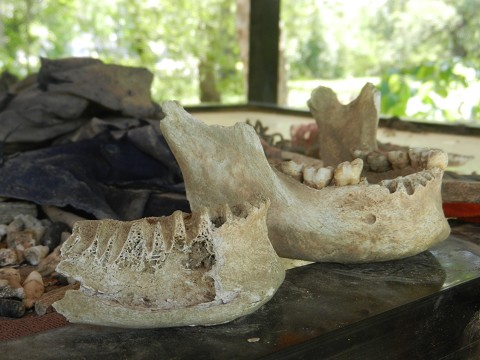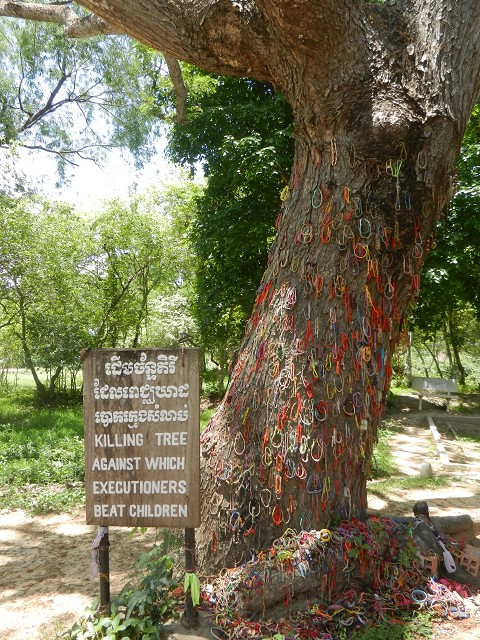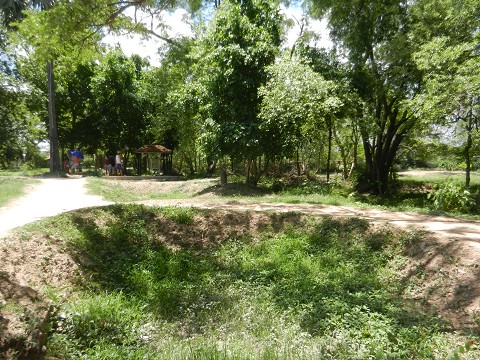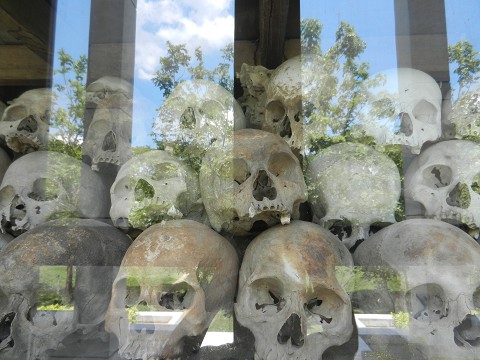*WARNING: some graphic content and pictures
I don’t think I’ve ever been so deeply affected by any country’s history as I have been here in Cambodia. Before I arrived, I knew very little about the events that occurred here in the late 1970s, when Pol Pot and his Khmer Rouge soldiers took control of the government, and approximately 2 million Cambodians (about 1/4 of the population) were killed. When I began to read a book about one woman’s firsthand account of the terror in “First They Killed My Father”, I was completely absorbed in it, all the way to the last word of the final page.
Pol Pot wanted to create a pure agrarian society and viewed all of the peasants, villagers, and farmers as ideal citizens, while city dwellers and the educated were considered contaminated – although he himself was educated at a university in France. Technology, religion, and money among other things were also banned. Evacuations of the cities and forced labor in the countryside combined with tiny food rations broke many people; others who were considered threats to the regime (doctors, nurses, teachers, celebrities, anyone with ties to the former government, etc.) were executed, often bludgeoned to death by farming tools and buried while still partially alive, since ammunition was too precious to use on such a large scale.
I couldn’t believe what I was reading. I suppose it’s not much different from the Holocaust, but just being in the place where something so horrifying occurred makes it so much more real. How could these things have happened such a short time ago, just a few years before I was born? And out of nowhere – impacting even the biggest of cities where people were going about their normal lives – going to the movies, perusing the markets, and attending school. The 2 million people of Phnom Penh were completely evacuated within 48 hours. It is impossible to fathom. The pure evil and senselessness of it all appalls me, and I can’t seem to stop thinking about it.
When I hear big trucks rumble down the road, I think of the fear that struck the people as the Khmer Rouge rolled in, demanding evacuations.
When I walk down the dirt road in my village, I wonder if it was a road traveled by many who were forced to leave their homes, never to return again.
When I do manual labor and become exhausted in the blazing Cambodian sun after a mere hour, I think about all those forced to work 14 hour days in uniforms of long black sleeves and pants with no light at the end of the tunnel.
When I eat rice, I think of the few grains per day that the Cambodian people were allotted during the rule of the Khmer Rouge.
When I dig dirt at the orphanage, I wonder about mass graves throughout the country that have yet to be uncovered.
When I hold a baby, I think of all the little ones mercilessly murdered by having their heads bashed against the killing tree, or by any other means.
When I see an elderly person, I wonder about their story and what kind of hell on earth they’ve lived through.
When we were in Phnom Penh at the beginning of the month, a group of us took a trip to the Killing Fields, the site of the execution and burial of thousands. Fragments of bone are surfacing here even today.
As I walked along the back fence and saw a man missing a leg begging there, I realized that a land mine was the likely culprit for his injury. The Khmer Rouge sprinkled land mines all around the country to block the people’s escape to neighboring countries, and they continued to injure and kill people long after the regime lost power.
Here are some pictures from our visit to the Killing Fields:






As I look upon these things, there is not much I can think of that comforts me. There is only this, and it is the hope I hold onto:
“I have told you these things, so that in me you may have peace. In this world you will have trouble. But take heart! I have overcome the world.” -John 16:33








